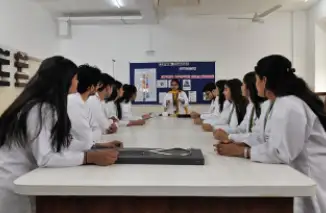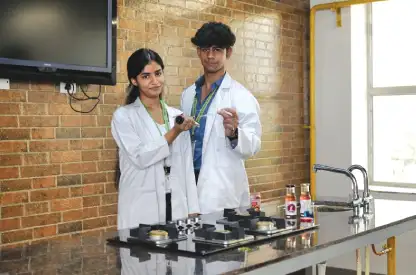Yes, faculty members in Food Science and Technology are actively engaged in various prestigious national and international professional bodies and editorial boards. Their professional affiliations and contributions include:
Active membership in renowned organizations such as the AFSTI, Nutrition foundation of India, Indian Science Congress, IAFP.
Editorial and reviewer roles, including serving on the editorial board of the IGI, BP international.
Leadership roles, such as serving as the Research Director, life science.
These engagements reflect the department’s commitment to academic excellence, research advancement, and contribution to the broader scientific and professional community.
.png)

 0
0 



















